Maintaining The Momentum
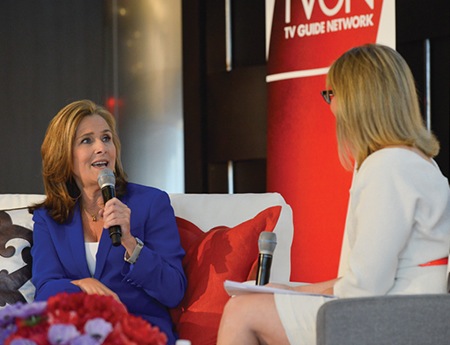
The smarter way to stay on top of broadcasting and cable industry. Sign up below
You are now subscribed
Your newsletter sign-up was successful
Follow your gut. Take the shot. Deal with issues head-on. Be brave. Build relationships. Get a mentor. Create your next move. Hold on to your integrity.
Those are some of the messages offered by the lineup of speakers for B&C’s fifth annual Keynotes & Cocktails: Women of New York. The April 21 event at the Roosevelt Hotel is off-the-record, but the speakers were polled via email for their thoughts on gender diversity and how to address the biggest obstacles they see to closing the gender gap in television and other media.
As the sector has grown and evolved, so have opportunities for women, according to the leaders’ firsthand accounts. But work toward equality remains.
Here are the responses we got to two central questions:
1. What is the most common challenge or biggest obstacle you’ve seen for women seeking to advance their careers in television? What’s your advice for them in dealing with this issue?
2. Has the quality and quantity of opportunity for women in TV grown, lessened or stayed the same since you started working in this business?
Highlights of their answers follow.
The smarter way to stay on top of broadcasting and cable industry. Sign up below
Val Boreland, executive VP, head of programming & production, Revolt TV
1) There is a [bias against] women because there is a work/life balance that they have to manage. Women get three months of maternity leave, men get two weeks. Women ask to work from home because of family, but men do not. So there is a preconceived notion, at times, that there is a disadvantage to hiring a woman because they won’t be as committed to the job.
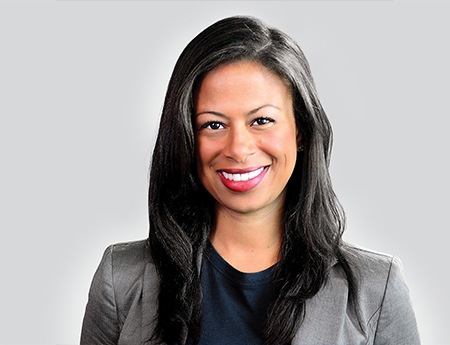
It’s hard to give advice for dealing with this issue because it’s a perception that is hard to change and perhaps a reality that cannot change. All we can do as women is to continue to be devoted to excelling in our careers and finding a balance that works best for both sides.
2) I had a unique start in that I worked at Lifetime, so I had many women around me and in senior executive roles. And then I worked at Comedy Central, which at the time had, and still has, a female president. My observations are that women have been continuing to increase their visibility in the various roles in TV, although I personally would like to see an increase in the number of women working in production and writing.
Jennifer Caserta, president and general manager, IFC
1) Women tend to put an immense amount of pressure on themselves to strike the perfect balance between work and personal life. But nothing’s ever perfect, and balance is a misnomer. It’s impossible to burn the candle at both ends and think you’ll be successful across all areas of your life all of the time. There are times when it will feel right to throw yourself head first and without a net into your career and other times when you’ll want to or need to focus more intently on family and personal time. Follow your gut when making executive and personal decisions. At the end of the day, a well-rounded executive makes a better employee, manager and leader.
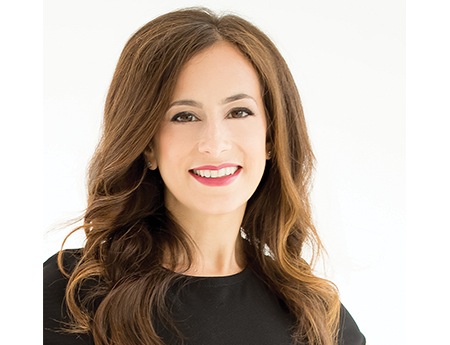
2) Over the course of the last two decades, new opportunities have organically emerged for all of us in television and even more specifically in the content business. The industry has evolved drastically since I started in the business, and it continues to change on what feels like a weekly basis. As a programmer, the proliferation and demand for content has created a sea of new opportunities. And the massive surge of technology and new products has helped us grow to new heights both in the way we use it to get the job done and how and where content is consumed.
Marlene Sanchez Dooner, executive VP, Hispanic Enterprises & Content, NBCUniversal
1) In my experience, opportunities in television have grown a great deal since I started working in this business. I have had the great fortune to be part of the team as we expanded Comcast’s businesses to include NBCUniversal and now as we work to magnify NBCUniversal’s offerings and connections to the Hispanic community. Content creation has also greatly expanded to accommodate online and digital consumption, which opens up new doors for women to explore and to take on leadership roles.
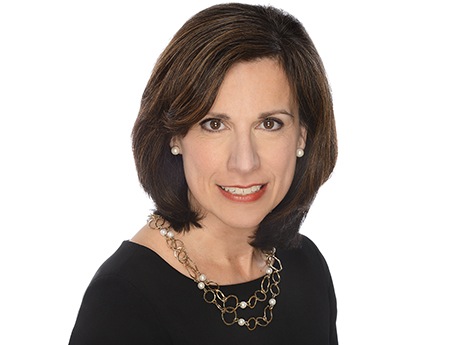
Marianne Gambelli, chief investment officer, Horizon Media
1) One obstacle that I see for women advancing in their careers is the lack of mentors. Many senior women executives reached their position without mentors—so they don’t consider themselves mentors or understand the important role of mentorship. Young women often struggle to define what qualities they should seek out in a mentor and what to expect from a mentoring relationship. There are more quality opportunities for women in TV and media than ever before.
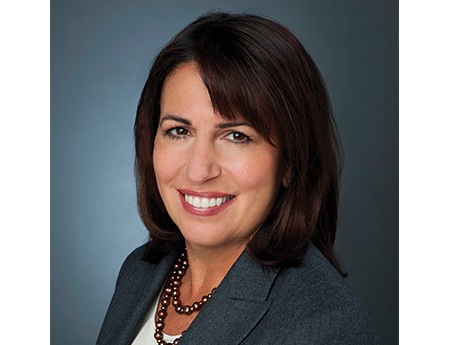
There are more qualified women entering the field, and generally, jobs are no longer defined by gender as employers are looking for qualified candidates that can fulfill the job requirements.
Lisa Hsia, executive VP, digital, Bravo & Oxygen Media
1) Building strong relationships is key for advancing in your career. Of course hard work is important, but finding mentors and networking among your peers is crucial in keeping you connected with the latest trends in the industry.
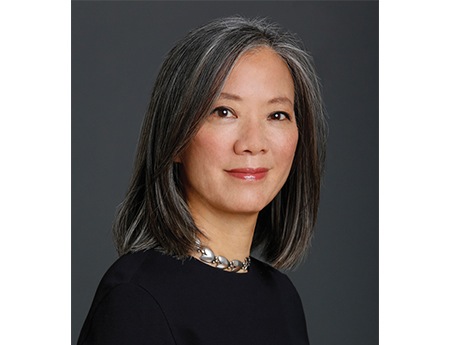
I also believe to a certain extent that you create your own luck. In other words, a person who has advanced in TV is probably someone who has not only recognized certain opportunities, but they’ve also capitalized on them. This common saying captures this thought well: “Luck is what happens when preparation meets opportunity.”
2) The opportunities for women have expanded tremendously since I started working in the business 30-plus years ago. I started working in newspapers as the sole female copy clerk in a newsroom with very few women editors and reporters. My role consisted of ripping up wire copy and running carbon copies of stories around to the editors’ desks. That job description alone tells you how much the world has changed. Now both my boss and my boss’ boss are women.
Brooke Johnson, president, Food Network and Cooking Channel
1) Confidence, not being able to voice the (smart) opinion you are purposefully there to share. Be brave. If you never take the shot, the ball is never going to make its way into the hoop.
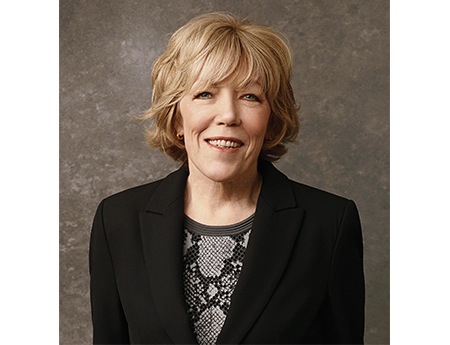
2) Opportunities for women have grown as the business has evolved, currently it is a very exciting time to be part of creating television content, especially for passionate creatives.
Superna Kalle, media consultant
1) I think women are often intimidated by speaking up and this holds them back. My advice would be to spend as much one-on-one time with people in the company. Build relationships that transcend meetings.
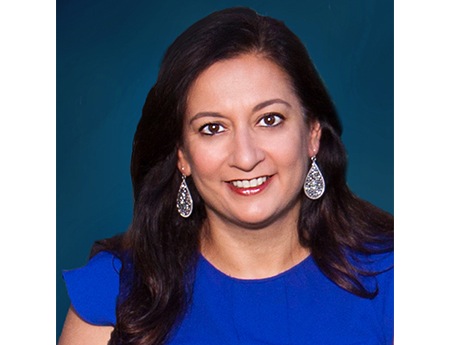
2) Speaking about the business side of television, there has certainly been some growth in opportunities for women. The industry as a whole has a lot more work to do. More mentoring programs supported at the highest levels along with flexible work arrangements would go a long way to make the television workplace more female friendly.
Michelle Miller, correspondent, CBS News
1) The most common challenge for women advancing remains in the realm of compensation. Women’s roles have grown significantly over time—they have gained entry into the higher echelons of broadcast management, they’ve obtained the chair of Evening News anchor desk full-time, they are positioned on beats as coveted as the White House and Congress, and they’re scoring bigger roles in the realm of sports and foreign assignments. Even so, there is still the perception (and, often, the reality) that women do not earn equal pay for equal work. While there are the occasional exceptions, depending on star power and celebrity appeal, that is still the general consensus of opinion from my colleagues in local markets, cable news and network television.
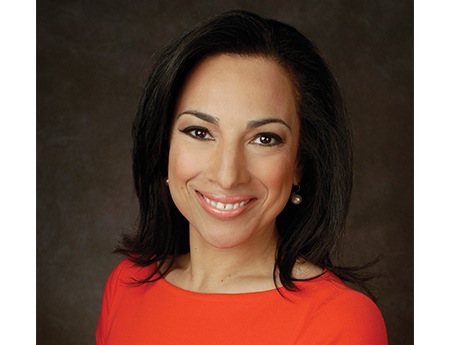
2) As I explained, there have been great strides made in the advancement of women in television. We have seen women break through the glass ceiling–from network news presidents to evening news anchors to war correspondents. But their numbers do not equal those of men in the higher rungs of news management. It will take more time, and certainly more effort, to equalize the rank and file, but I believe that news organizations are trying their best to make it more open and equitable.
Deborah Norville, anchor, CTD’s Inside Edition
1) One big challenge with which every media organization is dealing is the uncertainty of what our economic model will look like in the coming years. Many organizations are streamlining processes and cutting back on personnel, which understandably has many people, both men and women, uncertain of their job security. My advice to anyone who wants to secure their current position and be successful going forward is to find a way within your area of influence to increase the bottom line. This might be done by identifying a new income stream (it could be a new show, a way of repurposing new content, etc.) or streamlining processes that result in quantifiable costs and savings.
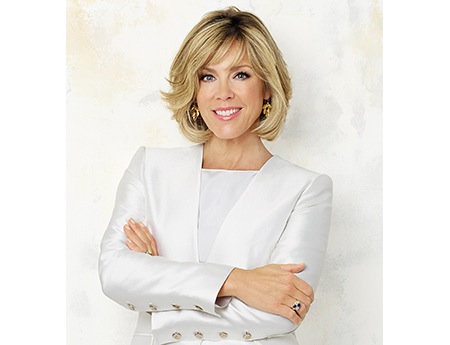
2) The number of opportunities have grown because the industry has expanded dramatically. But what hasn’t changed is that it’s still incumbent upon individuals to make opportunities happen for themselves. These days the more skill sets you have, the more valuable (and thus more marketable) you make yourself.
Chrystee Pharris, star, Pop’s Queens of Drama
1) For a woman of color, I find that auditioning for roles that have depth, meaning, and tell the story on the show is rare unless you do an indie film that nine times out of ten is low budget. For TV shows or big-budget movies, we are usually the sidekick, the comic relief, the supporter of the main character and well, frankly our lives are more complex than that. We would like to be the heroine. The advice? Be bold enough to write and create your own show. Moving to online producing is proving to be the way to go, to create the stories and characters you want to see on TV.

2) I have found that it has grown. I am seeing more women of color on TV with great story lines. In 2005, the casting director had to fight to get me into the audition and I was only one of two African-American women who auditioned for this one show. But, still they really didn’t consider us. They told my agent they are not going black. I was devastated. Now, I see more women of color leads in commercials and TV shows and being nominated for Emmys as well.
Gina Rodriguez, star, The CW’s Jane the Virgin
1) When comparing my journey to that of the women who came before me, I can’t imagine my obstacles could hold worthy of the title obstacle. There has been such liberation for women in television. With the many women leading TV shows this previous season and now this past pilot season I feel very lucky to be a part of that beautiful movement. The advice I have for what I can say I had dealt with in the past, is staying true to my personal integrity and ethics I cared to have in this industry. Do that for yourself and stick to those convictions because success is only a matter of time, keeping your integrity through it all becomes the true obstacle.

2) In my 10 years attempting to crack this crazy industry, I have seen opportunities substantially grow for women. Not only women but women of color which happens to be the category I fall into. So to see the possibilities and stories, [with] showrunners and studio heads [being] powerful women, it’s incredibly inspiring. That just makes me want to work harder and contribute to the opening of doors.
Geri Wang, president, ABC Sales
1) I work at a company that has championed women in executive roles. But of course some bias in the world still exists. The good news is that there is less bias today than there was when I first started my career. We all face challenges, in the case of women, I think it is still tough “getting a seat at the table” and breaking through gender stereotypes. The best way to deal with a blatant issue…is to deal with it directly. Acknowledge it, tackle it, solve it. Below the surface issues are trickier…they require more agility and more nuanced approaches. But they still have to be addressed. We can also ask for help. Here at ABC, we have tons of opportunities for mentoring groups. It’s a great way to surface issues and help each other.
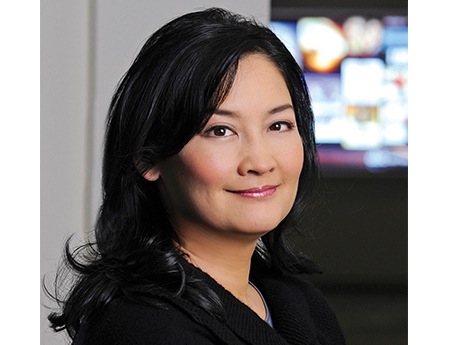
2) The opportunities have absolutely grown. Let’s just look at my corner of the business. Today three of the four broadcast networks’ sales teams are led by women, and many of the cable sales teams as well. Women head many agencies. Is the glass ceiling broken? Maybe not, but it has certainly been cracked.
Lisa Williams-Fauntroy, senior VP, business and legal affairs, Discovery Communications
1) As women, we sometimes doubt ourselves and doubt, when apparent, gives us less authority. This trait likely plagues career women in any field (not just TV) and can be an unspoken hindrance to advancement. With self-doubt, our ability to show off the skill sets we’ve mastered wanes, often our more dominant male colleagues appear to take over and, I think, we unintentionally sell ourselves short. This isn’t easy to overcome and it takes a lot of practice to remind ourselves that we are experts in our respective fields and must give ourselves that credit.
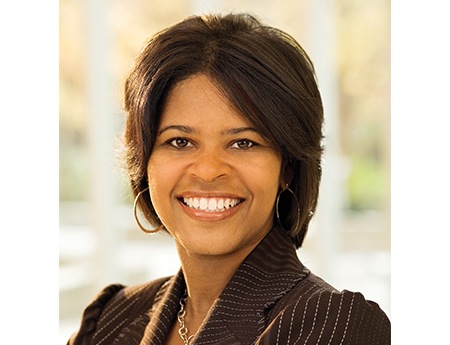
2) Fortunately, I think the opportunities for women are growing in our industry. The growth isn’t rapid but we aren’t stagnant either. The opportunities and successes are evident by the number of women I see running networks, leading strategy and creative teams and negotiating deals, among other things. Especially in the last five to seven years, we have seen a growth spurt in media businesses; many new networks have been launched and a variety of new media platforms are burgeoning and expanding their reach. These are all opportunities to stretch and I am happy to see many women thriving and excelling in the varied media fields.
How do you define success? If that definition has changed over time, how?
I define my own success. If I feel proud about what I've done, I usually don't let ratings or critics undermine that. But this is a business, so good ratings, business deals and press will always make me feel great. – Val Boreland
As our industry has progressed so has the traditional measurement of ROI and success. I always first take a personal assessment: Am I proud of the work? Did I make the right decisions? Would I make them again? And although success is typically defined as reaching the stated business goals and delivering an audience and profit there are other factors we need to now take into consideration. Cultural relevancy, social media chatter, critical acclaim, awards recognition, and time-shifted viewing are modern day realities that should not be ignored. With so many more external factors now that affect our success not taking those into account would be shortsighted. – Jennifer Caserta
I think success early on is measured by getting promoted or getting the next level job. You never sit back and say “Wow, I’m a success,” until you get that positive confirmation from your supervisor. However, as you gain more experience, you realize that success is about attaining the position or level that is right for you. Not everyone is going to be a president of something. Success becomes defined by your specific priorities–that could mean work/life balance or that could still be getting the next big job, and so on. – Marianne Gambelli
Success for me is defined by feeling as though I am able to make a difference and a real, quantifiable contribution to the business. Success is not limited to my career though, it also encompasses my family having a large presence in my life.
When I was younger, I aimed more for goals that centered around title and accomplishments. Today, I get a deeper satisfaction and enjoyment over the success of a team and its overall contribution to the business. – Lisa Hsia
Success for me is about challenge, learning, achieving and strong relationships, whether that be in my professional or personal life.
I am more aware of the importance of whom you work “with” than I used to be. With time, it becomes apparent that what really matters and what you probably should not waste time worrying about. Experiences, lessons we take from each scenario or project all contribute to our individual stories of success. – Brooke Johnson
When I was younger, like many people, I likely defined success as material comforts–nice car, house, good title, etc.
Now, I define success more broadly. It’s important that I feel fulfilled personally, spiritually as well as professionally. – Superna Kalle
The definition of success has changed for me over the span of my career. I used to believe that success was defined by position. I had always dreamed of becoming a network foreign correspondent. For me, it meant achieving a level of understanding and excellence in both reporting and writing. But life doesn't quite happen on a schedule. Timing plays a big hand in opportunity and in life. Over time, I made it to the network, and I’ve had the opportunity to cover stories on foreign soil, but I don’t hold the title. Recognizing that I have done the work and that the goal has been achieved is the world in which I now live. Success in my world means balance – balancing my professional ambitions with my personal achievements and reality. In addition to my career, I have family and community in my life, and being able to balance that combination gives me a great sense of success. –Michelle Miller
Every individual’s definition of success is personal and that definition is dependent upon where you are in your own life journey. When I was a senior in college, my definition was: Get a job. Happily, I succeeded, so my goals have changed since then. My own personal definition of success is to live my life in a way that brings honor to my family and conduct my career in a way that brings respect to my profession. – Deborah Norville
Success is about living your dreams and being able to make money doing it. Being happy and having balance in life, family, health and career. And lastly, then giving back to the next generation. In the beginning, when I was a kid, success was being a superstar like Michael Jackson and Whitney Houston. I wanted to win an Emmy and an Oscar since I was five years old. I still want it, but balance and family and life is starting to be more important to me. – Chrystee Pharris
Success to me is happiness in your current situation. Success is the accomplishment of a dream that you have been fighting for, failing for and living for realized. Success is family and friends healthy and happy. Success is waking up and doing what I love everyday of my life. That has always been and always will be my view of success. – Gina Rodriguez
I lead a sales organization so success is very clearly defined. Revenue is our True North. We know exactly what we have to do and if we met our goals. At the same time, our success includes having a very strong culture. And the best example of that is having a team of talented people who are excited to get up everyday and come to work at ABC. I know I do. – Geri Wang
There isn’t one way to define success and even though there are plenty of objective measures of success in the workplace, I believe that success is very personal. There are big successes and small successes, and we need to celebrate them all. Success changes over time for businesses as they evolve and for individuals in their careers. Part of what drives success for businesses is determined by the marketplace. We are in a very competitive world. For example, as a cable company, we see that with each year our consumers have more and more choices. Success is, in part, seeing our consumers stay with us and growing it even further despite the current trends with the marketplace. Within the company, we achieve success by attracting and retaining excellent talent. For me, success in my daily work, in its simplest form, is having a happy and productive team and keeping extremely satisfied clients. – Lisa Williams-Fauntroy
